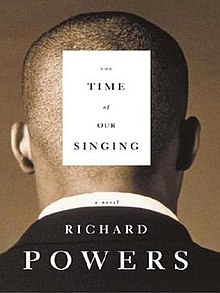I can assure you, sir, that these things really suck!" -- Don Van Vliet,when selling a vacuum cleaner to Aldous Huxley
 |
| Image by mikeable10 |
No , you’re neither drudge nor dullard for not being drawn to Don DeLillo. He either appeals to you or he doesn’t, as is the case with any other serious (or less serious) writer who wants to get your attention. The charges that DeLillo is tedious, wordy, and pretentious, not necessarily in that order, are themselves tedious and , it seems, levied by folks who either haven’t read much of the author, more likely, put forward by a host of soreheads who use DeLillo as a representative of a kind of fiction writing they dismiss wholesale. I’m not an easy sell when it comes to be seduced by writer’s reputations — my friends accuse me of being too picky, too “critical” — but I’ve read most of DeLillo’s fifteen novels since I discovered him in the early Seventies; if I didn’t find his writing brilliant and vibrant or found his narrative ruminations on the frayed American spirit engaging, I’d not have bothered with him. DeLillo is a serious writer, sober as a brick, but he is not pompous.
I marveled at the economy of his writing. He does write long sentences in parts of his novels, but they are so precisely presented they seem positively succinct. And that, I think, is a large part of their power. There are some readers who are slightly stunned when it’s revealed that one of DeLillo’s avowed influences , a model to learn from , is Ernest Hemingway, who’s low-modifier, low-simile, spare and sharp focused prose is detectable even those writers noted for their compound sentences. It would seem to be a matter of not the length of the sentence itself, but with the precision of the words being applied, the practice where typing and jotting things down becomes actual writing, that is, composition, a state of bring elements together that makes the expression comprehensible (shall we add “relatable”?) to readers besides the author and his or her immediate circle. Power and purpose are the things that make a long sentence of fiction a thing of wonder;good sentences are like pieces of great music that you read again, listen to once more. The Godfather of the terse, abrupt phrase, Hemingway could, when he chose to , compose a long sentence that had the advantage of serpentine rhythms snaking their way around a nettlesome gather of conflicting emotions and sentiments, but still had a wallop of an adroitly worded police report. The longest sentence he ever wrote, 424 words in his story “The Green Hills of Africa” is cinematic in its sweep:
That something I cannot yet define completely but the feeling comes when you write well and truly of something and know impersonally you have written in that way and those who are paid to read it and report on it do not like the subject so they say it is all a fake, yet you know its value absolutely; or when you do something which people do not consider a serious occupation and yet you know truly, that it is as important and has always been as important as all the things that are in fashion, and when, on the sea, you are alone with it and know that this Gulf Stream you are living with, knowing, learning about, and loving, has moved, as it moves, since before man, and that it has gone by the shoreline of that long, beautiful, unhappy island since before Columbus sighted it and that the things you find out about it, and those that have always lived in it are permanent and of value because that stream will flow, as it has flowed, after the Indians, after the Spaniards, after the British, after the Americans and after all the Cubans and all the systems of governments, the richness, the poverty, the martyrdom, the sacrifice and the venality and the cruelty are all gone as the high-piled scow of garbage, bright-colored, white-flecked, ill-smelling, now tilted on its side, spills off its load into the blue water, turning it a pale green to a depth of four or five fathoms as the load spreads across the surface, the sinkable part going down and the flotsam of palm fronds, corks, bottles, and used electric light globes, seasoned with an occasional condom or a deep floating corset, the torn leaves of a student’s exercise book, a well-inflated dog, the occasional rat, the no-longer-distinguished cat; all this well shepherded by the boats of the garbage pickers who pluck their prizes with long poles, as interested, as intelligent, and as accurate as historians; they have the viewpoint; the stream, with no visible flow, takes five loads of this a day when things are going well in La Habana and in ten miles along the coast it is as clear and blue and unimpressed as it was ever before the tug hauled out the scow; and the palm fronds of our victories, the worn light bulbs of our discoveries and the empty condoms of our great loves float with no significance against one single, lasting thing — -the stream.
The sentence approaches the state of pure lyric poetry, where the facts of what the senses reveal to us about the part of the world a character inhabits and finds intimacy with pass by in a rapid, camera like sweep, a suggestion of motion that brings about fast and fleeting descriptions, associations and swift suggestions of emotional attachment . The scene is both familiar as family yet made strange in the recollection, as a character’s subsequent history disrupts an instinctive nostalgia and provides an undertone of rueful irony , a sense of things not taken up. This is a fascinating case of recollection examined both as Eden and , maybe, a ring in the concentric circles of a hell formed by a character’s own decisions and choices. For the sheer joy of reading the next passage, let’s take a look at a longish sentence from DeLillo’s Underworld, where a character is driving, and manages to discern the roads, the highways, the freeway system as an ecosystem . DeLillo allows himself to riff on the theme, and to encroach just slightly on a rant, but the sentence , like many other passages in the sprawling genius of Underworld, is from a master who knows something about the mystery that comes from the not getting it right avails us of the heart-stopping poetics that momentarily cause us to reflect on our history of acting in our exclusive interest.
He drove into the spewing smoke of acres of burning truck tires and the planes descended and the transit cranes stood in rows at the marine terminal and he saw billboards for Hertz and Avis and Chevy Blazer, for Marlboro, Continental and Goodyear, and he realized that all the things around him, the planes taking off and landing, the streaking cars, the tires on the cars, the cigarettes that the drivers of the cars were dousing in their ashtrays — all these were on the billboards around him, systematically linked in some self-referring relationship that had a kind of neurotic tightness, an inescapability, as if the billboards were generating reality…
I think there’s a clutch of otherwise smart people who distrust and actively dislike anything that suggests elegant or lyric prose writing. John Updike, who, I think, was perhaps the most consistently brilliant and resourceful American novelists until his death, was routinely pilloried for the seamless flow of his telling details. If one cares to do a survey, I suspect they’d find the same caustic template levied at other writers who are noted for their ability to detail the worlds they imagine in ways that make the mundane take on a new resonance. Nabokov, DeLillo, Henry James, Richard Powers have all been assessed by a noisy few as being “too wordy”. The sourpusses seem to forget that this fiction, not journalism, that this literature, no police reports. The secret, I think, is that a writer possessed of a fluid style manages to link their mastery of the language with the firm outlining of the collective personalities of the characters , both major and minor.
The elegance is in service to a psychological dimension that otherwise might not be available. The thinking among the anti-elegance crowd is that writing must be grunts, groans and monosyllabic bleats, a perversion of the modernist notion that words are objects as used as materials to get to the essential nature of the material world. Lucky for us that no one convincingly defined what “essential nature” was, leaving those readers who love run-on sentences with more recent examples of the word drunk in progress. I don’t mind long sentences as long as there is some kind of mastery of the voice a writer might attempt at length; I am fond of Whitman, Henry James, Norman Mailer, David Foster Wallace and Joyce Carol Oates, writers who manage poetry in their long-winded ways. That is to say, they didn’t sound phony, and the rhythms sounded like genuine expressions of personalities given to subtle word choice. Kerouac, though, struck me as tone-deaf. After all these years of complaining about his style, or his attempts at style, the issue may be no more than a matter of taste. Jack Kerouac is nearly in our American Canon, and one must remember that the sort of idiom that constitutes literary language constantly changes over the centuries; language is a living thing, as it must be for literature to remain relevant as a practice and preference generation to generation.





